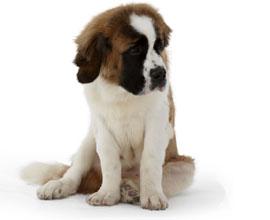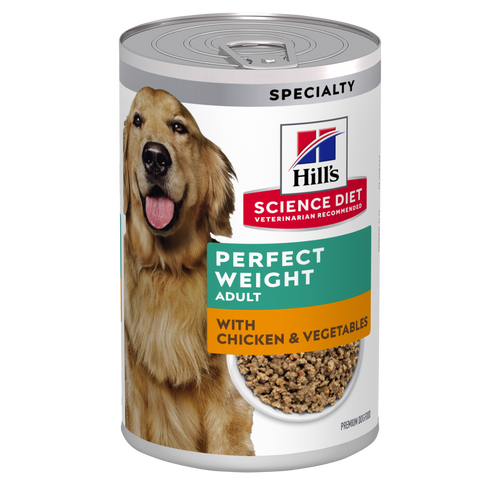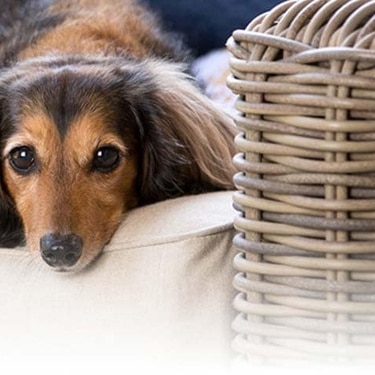
-
Find the right food for your petTake this quiz to see which food may be the best for your furry friend.Find the right food for your petTake this quiz to see which food may be the best for your furry friend.Health CategoryFeatured products
 Adult Perfect Weight & Joint Support Chicken & Brown Rice Recipe Dog Food
Adult Perfect Weight & Joint Support Chicken & Brown Rice Recipe Dog FoodThis weight management and mobility support dog food was created with Hill’s unique understanding of the biology of overweight dogs.
Shop Now Adult 6+ Large Breed Chicken Meal, Barley & Rice Recipe Dog Food
Adult 6+ Large Breed Chicken Meal, Barley & Rice Recipe Dog FoodSupports energy level, joint health, and beautiful coat in large breed mature dogs
Shop Now Healthy Mobility Large Breed Chicken Meal, Barley & Brown Rice Recipe Dog Food
Healthy Mobility Large Breed Chicken Meal, Barley & Brown Rice Recipe Dog FoodAdvanced nutrition shown to support joint health and improve mobility
Shop NowFeatured products Adult Perfect Weight Salmon & Vegetable
Adult Perfect Weight Salmon & VegetableOver 70% of cats lost weight within 10 weeks when fed this nutrition
Shop Now Adult Indoor Savory Chicken Entrée Cat Food
Adult Indoor Savory Chicken Entrée Cat FoodPrecisely balanced nutrition for indoor cats with the delicious taste of savory minced chicken
Shop Now Kitten with Salmon
Kitten with SalmonPrecisely balanced nutrition with the delicious taste of minced salmon to help build immunity and a healthy digestive system
Shop Now -
DogCat
- Cat Tips & Articles
-
Health Category
- Weight
- Skin & Food Sensitivities
- Urinary
- Digestive
- Kidney
- Dental
- Serious Illness
-
Life Stage
- Kitten Nutrition
- Adult Nutrition
Featured articles Water
WaterWater is the most important nutrient of all and essential for life. Animals can lose almost all their fat and half their protein and still survive, but if they lose 15% of their water, it will mean death.
Read More The Right Diet For Your Pet
The Right Diet For Your PetLearn what to look for in healthy pet food & nutrition, including ingredients, quality of the manufacturer, your pet's age, and any special needs they have.
Read More Pet Food Storage Tips
Pet Food Storage TipsWhere you store your cat and dog food can make a big difference in the quality and freshness once it is opened. Here are some common questions and recommendations for optimal storage for all of Hill’s dry and canned cat and dog food.
Read More -


Puppies aren't born with good behaviour built-in
Your new puppy didn't come with good behaviour included. Granted, his breeder may have introduced him to some initial toilet training, but the way he behaves as your pet is entirely up to you. The good news is puppies are quick to learn, so the sooner you start training him, the better. And if you follow some basic rules, you're in for a rewarding relationship with your pet for years to come.
Always reward good behaviour
Whenever your puppy does something good naturally, make sure you reward him. Although dogs of any age react positively to rewards of praise or food or both, when a puppy is rewarded, it will ensure that in t,he future, he'll be "good" again. But timing is of the essence; that reward must be given within a few seconds, or your puppy might link it to another type of behaviour rather than the one you intended.


Tasty Tips
Bad behaviour: do you prevent it or ignore it?
Actually, the answer is both.
Take chewing, for example. It's something you should expect your puppy to indulge in, as part of the exploration of his surroundings and the discovery of new things. The reasons for chewing may vary, but they range from boredom and teething, to attention seeking and the stress felt at being left alone.
Favorite objects to chew include pillows, shoes and items of furniture such as chair legs, so it's important that you teach your puppy what he can and cannot chew. After all, he wasn't born with a 'mustn't chew the kids' slippers" gene.
As well as denying him access to areas where he might do damage in the early weeks, you should also give him his own chew toys. When he chews one of these, lavish praise on him and let him get on with his chewing.
And when he chews the wrong things? Ignore it. That's right, ignore the 'bad' behaviour; no shouting, no smacking, no angry face. Just pretend your puppy isn't there and he'll soon get the message.
Sometimes you have to ignore the "ignore" rule
Of course, there may be occasions when ignoring your puppy's bad behaviour can be downright dangerous. For example, you might catch him trying to chew through a live electric cable. He doesn't know it's wrong or dangerous, but you must step in and say "No". You don't have to shout or have a prolonged go at him; a short, sharp "no" should be enough to get his attention. When he stops and you've got his attention, praise him and reward him with a treat.
Don't let barking drive you mad
Did you know that, as puppies reach maturity at around 6 or 7 months, they begin to guard naturally? Well, they do, and owners who don't know this and encourage their pets to bark end up with a dog that'll bark at every opportunity, and you won't be able to control it later.
So if you want a quiet contented life with your dog later, ,don't encourage your puppy to bark. That's not to say he'll ignore any serious threats; he'll react naturally, without being taught.
And please, don't encourage or reward excitable barking. He may bark with excitement when he's about to go out for a walk, so stand still and ignore him. When he's quiet, continue with your walk preparation.
Related products

Advanced nutrition shown to support joint health and improve mobility

This weight management and mobility support dog food was created with Hill’s unique understanding of the biology of overweight dogs.

Over 70% of dogs lost weight within 10 weeks when fed this nutrition

Supports energy level, joint health, and beautiful coat in large breed mature dogs
Related articles

Though it may seem like your four-legged friend loves nothing more than to nap on the couch, dogs need regular exercise to stay healthy just like people do.

Learn what you can feed your pregnant or nursing dog to keep her and her new pups healthy.

Selecting the right food for your puppy is a key to quality nutrition and a long, healthy life., Learn more about how to select the right puppy food.

A dog with a sensitive stomach has special needs. Learn more about sensitive stomach symptoms in your dog, what you can do to help sooth your pet’s insides and get recommendations on sensitive stomach dog food.

Put your dog on a diet without them knowing
Our low calorie formula helps you control your dog's weight. It's packed with high-quality protein for building lean muscles, and made with purposeful ingredients for a flavorful, nutritious meal. Clinically proven antioxidants, Vitamin C+E, help promote a healthy immune system.
Put your dog on a diet without them knowing
Our low calorie formula helps you control your dog's weight. It's packed with high-quality protein for building lean muscles, and made with purposeful ingredients for a flavorful, nutritious meal. Clinically proven antioxidants, Vitamin C+E, help promote a healthy immune system.


